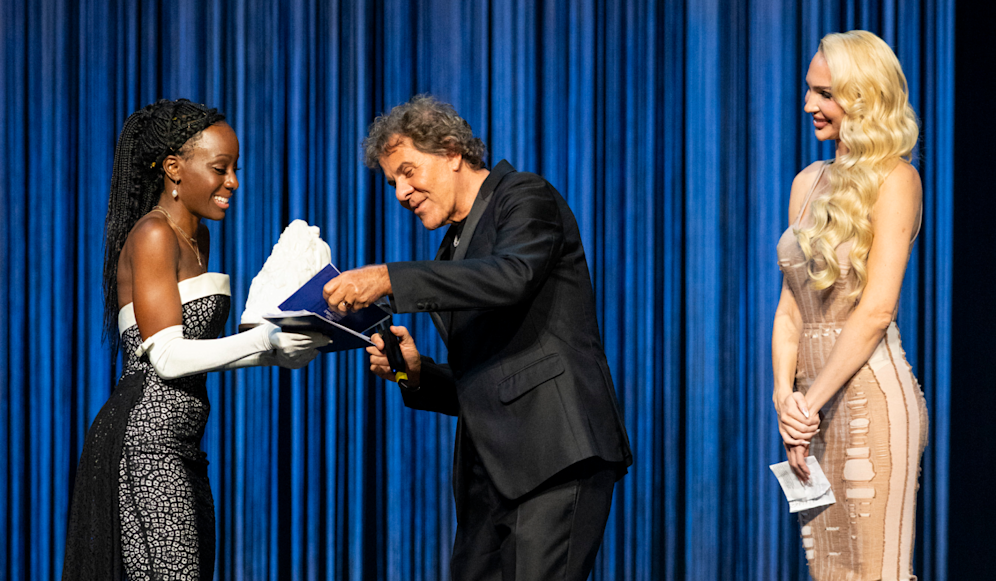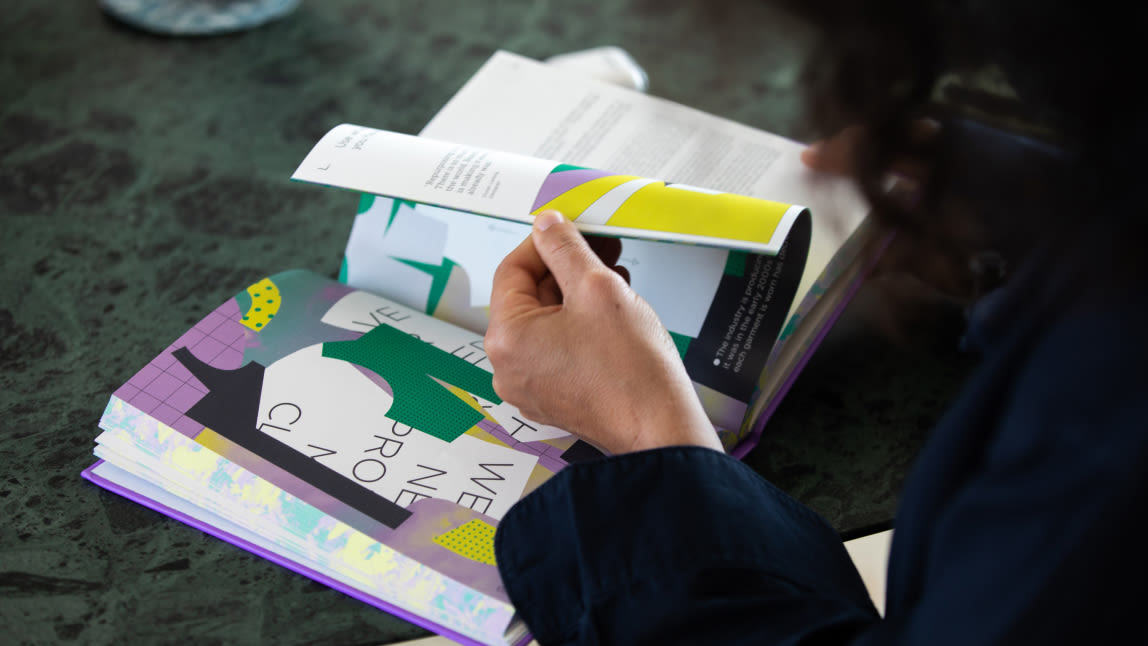In the 2024 edition of the CNMI Sustainable Fashion Awards, the Foundation managed and presented the Ellen MacArthur Foundation Award for Circular Economy, selecting a winner and two finalists, all of whom represent ambitious circular economy initiatives aligned with the vision of a circular economy for fashion.
After being Chair of the Jury for the past two CNMI Sustainable Fashion Awards (2022 and 2023), we were delighted to hand this position over to Simone Cipriani – UN Ethical Fashion Initiative and Chair of the UN Alliance for Sustainable Fashion.
In its third year, the Award for Circular EconomyCircular EconomyA systems solution framework that tackles global challenges like climate change, biodiversity loss, waste, and pollution. It is based on three principles, driven by design: eliminate waste and pollution, circulate products and materials (at their highest value), and regenerate nature. continued to recognise leaders in the industry that are excelling in applying circular economy principles to their work – eliminating waste and pollution, circulating products and materials, and regenerating nature.
In 2024, the winner of this Award was Diesel for their work on integrating circular economy principles into its business by building partnerships and initiatives that design waste out of the product development process, extend the life of existing products and establish creative collaborations to repurpose obsolete products and materials.
Over recent years the brand has been investing in partnerships, products and services that support circular business models. Product-focused initiatives such as Diesel Rehab Denim and the Diesel x UNIDO focus on material and product recycling and recyclabilityrecyclabilityThe ease with which a material can be recycled in practice and at scale., complemented by Diesel Second Hand and Diesel Loves which aim to extend the life of existing products through resale, repairrepairOperation by which a faulty or broken product or component is returned back to a usable state to fulfil its intended use. and remaking.

Photo credit: Alfonso Catalano
Arc’teryx and Vestiaire Collective were shortlisted for their efforts in applying circular business models.
Finalist Arc’teryx was shortlisted and received a special mention for their newly opened Alpha Stores, which bring together a full retail experience combined with multiple circular business models such as repair and re-commerce under one roof. At the heart of these stores is the company's platform for circular initiatives, ReBIRD: reducing waste and keeping gear in play through care and repair, re-commerce, and upcycling. Their quantitative results and plans for further expansion show the strength of ‘stacking’ circular business models to complement one another and create a multiplying effect which strengthens the economic benefits of each model.
Vestiaire Collective was shortlisted for its repair collaboration with Sojo. The pilot aims to make it easier for people to buy second-hand clothing by offering repair services and improving options for resale. Their partnership also demonstrates the value of combining circular business models, which is key to unlocking the scale required to drive meaningful change.
Andrew Morlet, CEO at the Ellen MacArthur Foundation, said:
Diesel has demonstrated its commitment and leadership in redesigning the future of fashion, which is why we are delighted to announce them as the winner of the Award for Circular Economy.
Along with shortlisted finalists Arc’teryx and Vestiaire Collective, our Award recognises the essential work being done to redesign business models with circular economy principles at their heart.
Change cannot happen overnight, but we are optimistic about the road ahead. We hope designers and creatives across the globe are inspired to drive innovation and create a new normal for the fashion industry, one which helps tackle global challenges like climate change and biodiversity loss.
By recognising those leading the way in applying circular economy principles, we hope to inspire creatives and designers everywhere to embrace their role in reimagining products, services, and systems, and realise their potential in the transition to a circular economy. Together we can make circular business models the norm: essential, accessible, and enjoyable.






